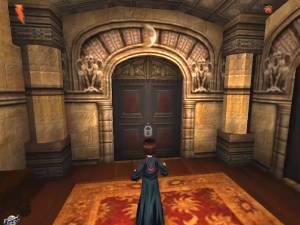

It is significant to note that Harry never breaks the rules simply for the sake of breaking them: he breaks rules only when he truly believes that his actions are necessary. Moreover, Harry is perfectly willing to accept the consequences for his rebellion, just as long as he is able to take action when he can. He is able to think for himself and, depending on the situation, making judgment calls that have the potential to save lives.

Although Rowling does admit that the rules imposed at Hogwarts are meant to keep the students safe, she also presents Harry's disregard for these rules as a heroic quality of his character. Harry, in particular, is always willing to break a Hogwarts rule if it means taking action or doing something that he believes is right. Over the course of "Harry Potter and the Sorcerer's Stone," Harry, Ron, and Hermione break many school rules in pursuing their adventures. Nothing is cut in stone when it comes to an individual's future, but, as Harry demonstrates, each individual has the opportunity to change the direction of their life through significant, as well as insignificant, choices. Thus, instead of accepting the Sorting Hat's decision, Harry refuses to be placed in Slytherin House and is placed in Gryffindor House instead.Īs Professor Dumbledore later explains to Harry, it is the choices made by an individual that determine what kind of person they are and why kind of person they will become.

Yet, Harry refuses to take a passive role when it comes to his own future, particularly when it means following the path marked by the dark wizard who killed his parents. In some respects, Harry seems fated to follow in the footsteps of Voldemort, a destiny which is demonstrated in the Sorting Hat's initial intention to sort Harry into Slytherin House. From the start of the book, Rowling describes many uncanny similarities between Harry and Voldemort: their twin wands, their connection to snakes, even their some aspects of their appearance.
#Harry potter and the philosophers stone game download free
One of the most important themes that Rowling discusses in the book is the concept of choice and free will. Harry's ability to love also provides him with a support system of friends that Voldemort can never hope to match. Harry's love for his parents instill him with an earnest determination to defeat Voldemort and rebell against anything associated with the Dark Arts (thus, Harry's refusal to be sorted into Slytherin House). Harry's own ability to love and be loved are the key traits that distinguish him from Voldemort and ensure that Harry will never be seduced by the Dark Arts. As Professor Dumbledore asserts, Voldemort is incapable of understanding love, particularly in comparison to the strength of his own dark power, and so he was taken entirely by surprise when it came to Lily's sacrifice. By sacrificing her own life to save that of her son, Lily Potter gave Harry an magical form of protection that shielded him from Voldemort's curse and nearly destroyed the dark wizard. Rowling demonstrates the power of love from the very beginning of the narrative by explaining that Harry's ability to survive Voldemort's killing curse is a direct result of his mother's love. Love plays a crucial role in " Harry Potter and the Sorcerer's Stone," as well as all of the remaining books in the series.


 0 kommentar(er)
0 kommentar(er)
